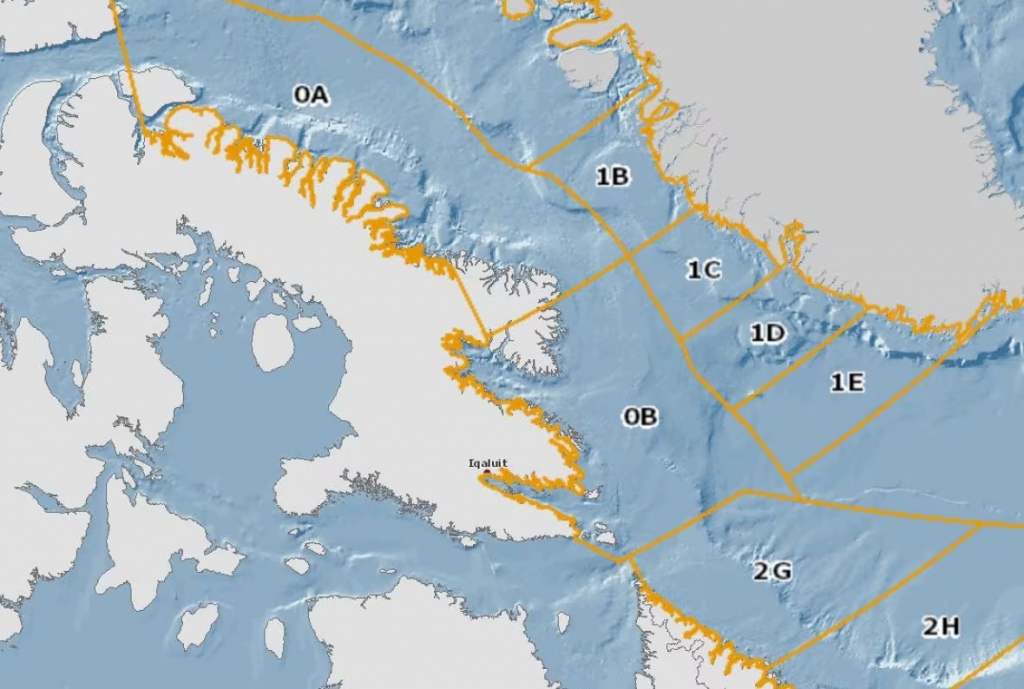Feds ask court to dismiss Nunavut Inuit lawsuit on fishing licences

Government argues minister appropriately factored Inuit rights in decision-making process
Lawyers representing the Government of Canada are asking a federal court judge to dismiss a lawsuit from Nunavut Tunngavik Inc. (NTI) and the Qikiqtani Inuit Association (QIA).
The court is in Iqaluit this week to hear the case, where NTI and QIA are asking to quash a decision from then-Fisheries and Oceans Minister Bernadette Jordan, to reissue fishing licences as part of the 2021 sale of Clearwater Foods to a coalition of seven Mi’kmaq First Nations, which bought 50 per cent of the company.
Nunavut’s Inuit organizations opposing the decision have argued the minister failed to consider provisions of the Nunavut Agreement, which says the federal government should recognize the importance of the adjacency principle and “give special consideration to these factors when allocating commercial fishing licences.”
On Tuesday, lawyers for the federal government argued Jordan did, in fact, give the requisite special consideration to the provisions of the Nunavut Agreement, arguing the decision was reasonable and procedurally fair.
Namely, the government argued NTI and QIA were owed, and given, meaningful opportunities to present their position, and did so in writing and during several face-to-face meetings.
The government provided the court with a memorandum from then-deputy minister Timothy Sargent, which outlined the background and legal considerations for Jordan to be taken into account in making her decision. In it, the memo outlined the government’s obligations under the Nunavut Agreement and previous case law where the adjacency principle has come up.

But the memo’s recommendations leaned on previous case law where the adjacency principle of the Nunavut Agreement was used to challenge quota allocations by the government, but was ultimately dismissed because of the impact on the existing licence holders.
“The reissuance request in this case is not a stand-alone request for a licence transfer in the usual sense, but is one part of a broad, complex, and highly structured transaction,” the memo reads.
“In this case, an entire company has been sold with the expectation that the licences issued to the company would be reissued in respect of the new commercial, financing, and ownership structures of the parties.”
“Contribute significantly to reconciliation”
The memo ultimately recommended Jordan reissue the licences to the new Mi’kmaq coalition, noting Nunavut already held significant shares in two zones where Clearwater had licences and because it would be “unfair in these circumstances to strip Clearwater of the value of these licences” to benefit Nunavut.
The memo also highlighted how the Qikiqtaaluk Corporation — a subsidiary of QIA — and unspecified “Nunavut Companies” had been contacted to participate in the purchasing effort of the Clearwater sale, but declined.
“It is clear that in this case Nunavut interests strongly support the licence reallocation through means other than a willing buyer/willing seller,” the memo read, adding the sale of the company and reissuing of the licences would, in the department’s view, contribute to reconciliation.
“Diverting the allocations to a third party invites the department to substitute a nonvoluntary licence relinquishment for a voluntary one, something that could potentially undermine an opportunity to further reconciliation with the Mi’kmaq Coalition, even though Nunavut Inuit might consider it a welcome reconciliatory step.”

“Part of Canada’s evolution as a country”
At one point in Tuesday’s proceedings, Justice Paul Favel interjected to ask the government’s lawyers whether, given all the factors Jordan had to consider, the provisions of the Nunavut Agreement were given the same weight of other considerations.
“Not necessarily priority, but solely working toward trying to find what ‘special consideration’ actually is,” Justice Favel explained.
“We know it’s not priority, but how is it considered? If the word ‘special consideration’ is used, how does that work with other stakeholders and other interests that are also in play?”
The government has argued that given the complexity of the transaction, and the competing interests, the minister was required to give only special consideration to the adjacency principle in the Nunavut Agreement, but ultimately Jordan had the legal ability to exercise her discretion.
“While I can appreciate the court might want to have more of an absolute answer from Canada in this case, it’s simply not possible to say ‘in this instance, this is how the factors should balance out’ because in every instance it’s going to be entirely dependent on the factual context,” Marlaine Anderson-Lindsay, representing the government, argued.
“This is why the other aspects of the Nunavut Agreement are so very important. The engagement in the provision of advice to the minister around allocations generally through those different committees, this is where treaty implementation has also faced significance and, to where a great extent, is being successful.
“Are we still in the throes of treaty implementation with different perspectives and different positions? Absolutely. This is part of Canada’s evolution as a country, as we figure out how to be in it together. But is this the situation for determination once and for all? No.”
Related stories from around the North:
Canada: Federal Court in Iqaluit to hear lawsuit over fishing license decision, CBC News
Finland: Finnish Sámi activists win fishing rights case, Yle News



